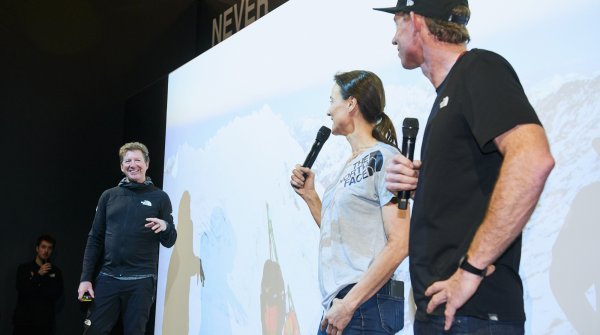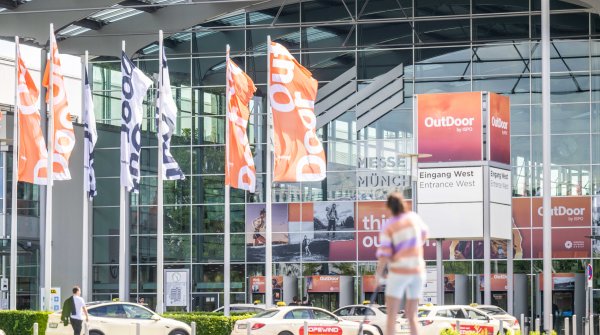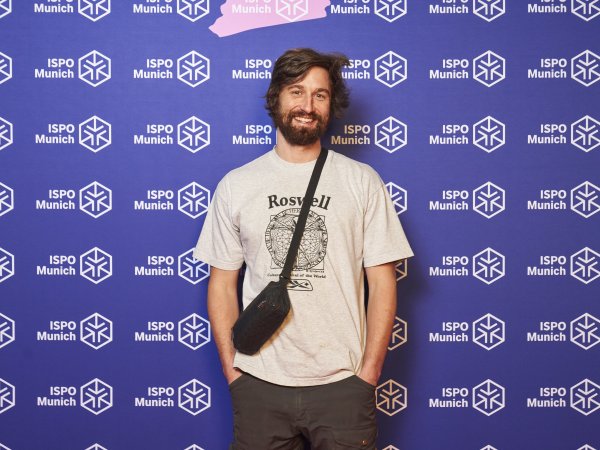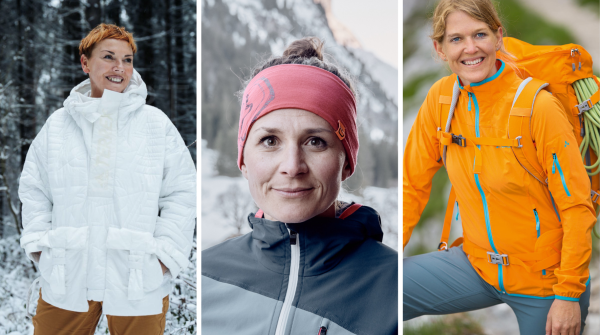"Vanlife for me is usually linked to something, such as an activity I want to do. A lot of my tips center around surfing, for example," says Foster Huntington, describing his view of vanlife, a lifestyle he helped shape through his Instagram channel. The action sports influences of his teenage years calibrated his inner compass: "Music and imagery from snowboard or skate movies determined what I found cool and what I didn't." Surfing is now his favorite sport. "But snowboarding probably had the biggest influence on me. Apart from that, I like skateboarding and have my own bowl at home."
He has also turned his back on full-time van life. "I've had a home for ten years, where the tree houses are. I now travel maybe two months a year, whereas I used to be on the road all the time."
There are now many different definitions of the outdoors - not to mention vanlife, microadventures and classic outdoor sports. For Foster Huntington, outdoor primarily means surrounding yourself with nature. "I'm more of an immersive outdoor guy. For me, it's all about living directly in the forest. But I don't live super remotely. My home is an hour away from Portland and it takes me 25 minutes to get to the nearest supermarket."
He doesn't like the idea of "nature as our playground", because: "We live in nature. I like living in a more rural area because it makes me feel more connected to nature in a way that's a little less hedonistic." This goes hand in hand with understanding nature better. "For me, being outdoors also means realizing that nature has an overwhelming power and that humans are less powerful. That's what I like about it."
Someone like Foster Huntington, who likes to surround himself completely with nature and spends a lot of time outdoors, also has ideas with regard to the current sustainability debate in the outdoor sector. "There is definitely a demand for companies that make things that last forever or repair them. But we mustn't lose sight of the fact that buying new always has a greater impact than re-impregnating, repairing or simply reusing what we already have." Of course, he believes that brands that produce functional clothing definitely have their place, as they are in constant use at home, where he puts on his snowshoes and weatherproof jacket to chop wood in winter. Nevertheless, he also sees the need for change: "Consumption must change in a meaningful way. Companies need to change, produce less and produce things that last much longer."
Foster doesn't just see the challenge on the brand side: "It will also be difficult from the consumer's point of view, because we are trained to get something cheaper on Amazon or hit the Black Friday sale. The most sustainable jacket is always the one we already have." From a marketing and branding perspective, this still requires a real shift. But there are also good opportunities for brands to position themselves here.
In Huntington's view, the really important thing for brands and people in the sports world is not to lose sight of who you are: "If you're a skateboard brand, you're about skateboarding. If you're a snowboard brand, it's about that. Nowadays, brands try to have something for everyone in their program. I don't think that works. It's better to get back to your core and focus on what you're really about. Collabs are cool if you do one or two, but not if your whole business is based on them."
In his view, the same also applies to content creators or people who are just starting out in the media. "Do something that's really unique to the current situation you're in. What are you really interested in, what is your background? Use modern technology to realize your goals instead of looking at who's shouting the loudest. I would pay attention to that."
He takes a rather critical view of social media and the developments on the platforms. As well as their impact on loneliness and mental health. "I spend an incredible amount of time alone, mostly camping alone - except for my dog, which does make a difference. But being alone was the reason I started photography. I wanted to share the things I've experienced," says Foster. "I send the pictures to my parents, my brother or my friends to show them what I've just discovered. I like that about social media too, it connects us on that level." At the same time, no one is immune to falling into a rather negative cycle.
"There's always the constant comparison with others. Especially if you perceive things differently and aren't camping with a bunch of friends. This can quickly lead to loneliness or even depression."
Not getting into this cycle is easier said than done. According to Foster, it takes a lot more self-reflection and understanding of the media to prevent this, which probably doesn't hurt anyone.
When it comes to creativity, Huntington has a rather skeptical view of social media and the fact that we are globally networked. "There are no longer any local silos where special things can be created." Although he also sees the advantages of always being up to date. "But just looking at how many likes I get is not good for creativity. Great ideas never work straight away. You have to develop a perspective and keep going until it works. That's something I really struggle with. I don't have a solution for it, except to be very conscious of what you create."
For his own creative process: "Oh, my inner child would love this", instead of "others do this to get likes, so I have to do it too." In order to get in touch with his inner child better, he also provides direct tips. "That's exactly why I built the tree house. I want to wake up every day and think, awesome, I'm in a tree house. For my eight-year-old self, that would be the coolest thing ever."
He applies this approach to his other projects. "At the same time, it's important to have friends who help you assess whether it's just nonsense or really worth the time. Many of my friends helped me build the tree house, for example."
Work hard, keep going even if you don't get it right first time, don't be too perfectionist and keep creating new things, Huntington lists other tips. "Force yourself to create things. That's important for creatives."
As a creative jack-of-all-trades, Huntington particularly values the process in his own creative work: "I love research. There are thousands of books and magazines and movies in my house. I'm oldschool, I'll look at a photo book or buy a bunch of old heavy metal magazines on Ebay to look through their designs when I'm working on a project. That's also something I like about stop-motion, because it's all in the preparation and pre-production." It's also important for him to work with people towards a goal, to connect. "As soon as it degenerates into a result thing, where I just have to press a button or install something, I'm less interested in creating things." Nevertheless, he is certain that AI will drastically change many things in the coming years, such as how films are created.
Speaking of wishes for the future, does Foster Huntington have any in relation to the sports and outdoor community? "I hope that things will move back towards the community." This statement also has to do with how he himself came into contact with sports culture:
"Getting together and watching the latest Warren Miller movie in a theater in Portland once a year had a big impact on me when I was young. Today, it's all much more fragmented. That may sound nostalgic, but I hope that things will move back in the direction of emphasizing shared experiences and celebrating the moment as a community."

 OutDoor by ISPOOutDoor in transition
OutDoor by ISPOOutDoor in transition
- Awards
- Mountain sports
- Bike
- Fitness
- Health
- ISPO Munich
- Running
- Brands
- Sustainability
- Olympia
- OutDoor
- Promotion
- Sports Business
- Textrends
- Triathlon
- Water sports
- Winter sports
- eSports
- SportsTech
- OutDoor by ISPO
- Heroes
- Transformation
- Sport Fashion
- Urban Culture
- Challenges of a CEO
- Trade fairs
- Sports
- Find the Balance
- Product reviews
- Newsletter Exclusive Area
- Magazine






